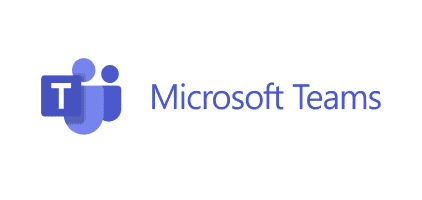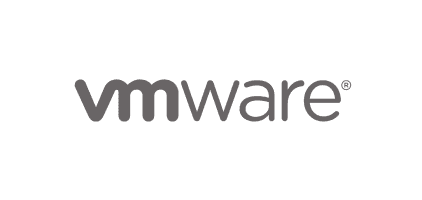Iserv has been a reliable connection for years! They communicate well. We hear from them when there is a planned outage. Those are rare, but they are usually scheduled for the off hours.
-
- Get our pricing sent into your inbox
-
Why Choose Iserv as your Managed IT Services Provider in Grand Rapids, MI?
Tailored IT for 1,000+ Businesses
Customized managed or co-managed IT solutions designed to meet your unique business needs.
24/7 Support from 30+ Technicians
Access expert, round-the-clock support from engineers, ensuring rapid issue resolution.
97%+ CSAT, 10-20+ Year Client Retention
Proven satisfaction with 97%+ CSAT and long-term client relationships lasting 10-20+ years.
IT for 10,000+ End Users
Comprehensive IT services for 10,000+ end users, eliminating vendor inefficiencies.
80% First-Call Resolution Rate
We resolve maximum IT issues on the first call, boosting productivity and minimizing downtime.
Let our clients do the talking—read their success stories.
Iserv has been a reliable connection for years! They communicate well. We hear from them when there is a planned outage. Those are rare, but they are usually scheduled for the off hours.
We’re incredibly impressed with our Iserv. Their team of engineers is not only highly skilled but also consistently delivers top-notch work. The staff is always friendly, approachable, and eager to help. The support they provide is exceptional, going above and beyond to ensure our needs are met. We couldn’t ask for a better partner!
Responsive, Reliable, team always available to help with any questions. Always grateful to be a customer.
Transforming businesses with bespoke, 24/7 managed IT services that prioritize innovation, reliability, and long-term partnerships to future-proof your IT infrastructure.
























Discounted Services for New Clients
Get started with our services risk-free—enjoy a month free and significant discounts on your initial setup and modernization.
Comprehensive IT Management
Simplify your IT with our all-in-one service package, eliminating vendor hassles and ensuring streamlined, efficient operations for your business.
Proactive IT Security
Stay ahead of threats with our advanced security measures, designed to prevent issues before they occur, ensuring continuous protection for your business.

Navigate the fast-paced tech world confidently—Iserv keeps your systems secure and your business ahead.
Simplify your IT with comprehensive management, including expert router and firewall services for enhanced security and peak performance.
Complete IT support with full coverage, on-site/remote assistance, helpdesk solutions, and expert technical care.
Tailored IT consulting for VoIP, cloud, network, and strategy, delivering custom roadmaps aligned with your business vision.
Safeguard your business with unified protection: cloud, network, endpoint security, mobile defense, and proactive threat management.
Boost network efficiency with 24/7 monitoring, robust security, wireless management, & custom infrastructure design tailored to your needs.
Simplify IT with complete outsourcing: infrastructure, helpdesk, vCIO, and custom project management solutions tailored for your business.
Get comprehensive IT helpdesk support: on-site, remote, and 24/7/365 coverage to keep your operations running smoothly.
Guarantee smooth cloud operations with expert support, robust backups, and seamless integrations across public, private, and hybrid clouds.
Transform your business with best-in-class AI solutions and our expertise, reducing inefficiencies and modernizing your operations seamlessly.

Did you know that managed services offer 45–65% cost savings compared to internal IT groups? Choose us for managed IT services and experience the difference of a true partnership.
Choose us for managed IT services and experience the difference of a true partnership.
We focus on building collaborative, long-term relationships rather than transactional interactions, ensuring clear communication and quality service tailored to your success.
Our team, composed of over 80% dedicated engineers, delivers top-tier support 24/7, blending deep industry knowledge with the latest advancements.
Committed to future-proofing your business, we keep you ahead of the curve in a rapidly evolving IT landscape.
With a national reach and a local touch, our flexible and adaptable solutions cater to your unique needs, supported by the extensive resources of our parent company.
Contact us today for specialized solutions and professional support!
Know how our other IT services can benefit your business, enhancing efficiency, security, and overall performance.
With over 30 years in the industry, our IT solutions are customized based on a detailed assessment of your specific requirements. Whether you need full management or co-managed services, we adapt our approach to streamline your operations and become your single point of contact for all IT matters.
We prioritize long-term partnerships over transactional relationships. Our commitment to clear communication and high-quality service ensures that we work collaboratively with you to achieve your success, rather than just providing a service.
Over 80% of our staff are dedicated engineers and support professionals. Available 24/7, they bring deep industry knowledge and the latest advancements to deliver exceptional support, aiming for first-call resolution 80+% of the time, depending on the issue’s complexity.
We continuously modernize our approach to keep you ahead in a rapidly evolving IT landscape. Our proactive and preventive approach, coupled with our extensive experience, ensures that your business remains current and competitive with the latest technological advancements.
While we serve multi-site customers nationwide, we maintain personal relationships that are essential for successful partnerships. Our large carrier resources combined with a flexible, personal touch ensure robust, tailored services that meet your specific needs.
our support and network operations center is available 24/7/365.